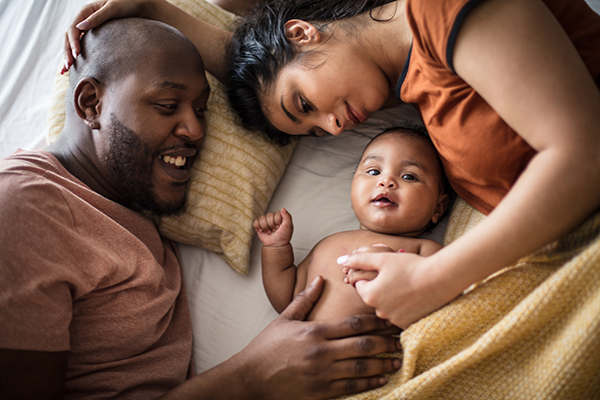Statement of Jocelyn Frye, President of the National Partnership for Women & Families WASHINGTON, D.C. – June 28, 2024 – Today, the Supreme Court upended sound, longstanding, legal precedent that has provided protections for everyday people for decades...
State Abortion Bans Threaten Nearly 7 Million Black Women, Exacerbate the Existing Black Maternal Mortality Crisis
Analysis from the National Partnership for Women & Families and In Our Own Voice: National Black Women’s Reproductive Justice Agenda reveals the harmful impact of Dobbs on Black women. We find that more than 6.7 million Black women – 57 percent of all Black women ages 15-49 – live in the 26 states that have banned or are likely to ban abortion.

Maternity Care Payment Reform
For the first time, our report assesses the actual impact of maternity care episode payment and maternity care home programs and provides recommendations for improving alternative payment models (APMs).
Fact Sheet: Black Women’s Maternal Health
The United States has become even more dangerous for Black people to give birth. Regardless of socioeconomic status, Black women and birthing individualsNOTE: We recognize and respect that pregnant, birthing, postpartum, and parenting people have a range of gender...
Black Women’s Maternal Health
The reproductive health of Black women has long been compromised by interpersonal, institutional, and structural racism. In addition to contending with social and economic drivers of poor health that undermine Black Americans, they have experienced discriminatory health care practices and abuse from slavery to the present.
Our Communities Hold the Solutions
A robust body of research has shown that this type of doula support is associated with better childbirth experiences and healthier outcomes for both parents and babies. Today, doula support is available across a variety of reproductive health experiences, including abortion, miscarriage, stillbirth, and fertility treatment, as well as in other life course settings such as pediatric care, preventive health care, critical care, and palliative or end-of-life care
Improving Our Maternity Care Now Through Doula Support
This report outlines the evidence that supports the unique value of doula support across different communities, the safety and effectiveness of doula support in improving maternal and infant outcomes, the interest of birthing women and people in use of doula support, and the current availability of, and access to, doula services in the United States.
Spotlight on Success: Tewa Women United
The community-centered Yiya Vi Kagingdi Doula Project was created in response to a survey of women in the six Tewa-speaking pueblos and as one approach to mitigate violence against women, children, and Mother Earth. The program supports birthing people and their families with about three prenatal home visits, continuous support while giving birth, about three postpartum home visits, and lactation support, as well as remote support, all within a birth equity framework.
Spotlight on Success: Open Arms Perinatal Services
Open Arms Perinatal Services is an excellent example of how community-based doulas that provide an extended range of prenatal to postpartum care can dramatically improve the health of mothers and babies.
Spotlight on Success: Roots Community Birth Center
The Roots Community Birth Center demonstrates the exceptional value of community-based and -led forms of the birth center model for communities disadvantaged by structural racism, intergenerational underinvestment, and other forms of discrimination.
Improving Our Maternity Care Now Through Community Birth Settings
Research shows that care provided in community birth settings can make a concrete difference in improving maternity care quality and producing better outcomes, including for People of Color. Care in these settings that is led by Black, Indigenous, People of Color is a crucial approach for meeting the needs of communities affected by structural racism and other forms of discrimination. This report outlines the evidence that supports the unique value of community birth settings across different communities.
Improving Our Maternity Care Now Through Midwifery
Research shows that midwifery care provides equal or better care and outcomes compared to physician care on many key indicators, including higher rates of spontaneous vaginal birth, higher rates of breastfeeding, higher birthing person satisfaction with care, and lower overall costs. Community-based and -led midwifery services are especially powerful.
Spotlight on Success: Mercy Birthing Center
The Mercy Birthing Center illustrates the potential of a nourishing midwifery-led unit within a hospital. The center is a separate unit operated by CNMs within Mercy Hospital St. Louis. It was established in response to women’s growing interests in receiving support for physiologic childbearing.
Saving the Lives of Moms & Babies
This 10-part series connects the dots between how different socioeconomic factors affect maternal and infant health, the outsize impact these factors have on Black, Indigenous, and other People of Color (BIPOC) communities, and recommendations to effect the change we need to ensure all moms and babies thrive.
Incarceration Harms Moms & Babies
The Problem: Mass incarceration is hurting pregnant people and their infants.
Poor-Quality Built Environments Hurt Moms and Babies
The Problem: Deficiencies in neighborhoods’ physical conditions impair the health of pregnant people and their infants
The Maternal Mental Health Crisis Undermines Moms’ and Babies’ Health
The Problem: Untreated maternal mental health means worse health outcomes for moms and babies
Substance Use Disorder Hurts Moms & Babies
The Problem: Health care and support for pregnant people with substance use disorder are inaccessible and inequitable, and instead they are shamed, stigmatized, and punished.
Racism Hurts Moms and Babies
The Problem: Racism is hazardous to the health of pregnant people and their infants
Higher Temperatures Hurt Moms and Babies
The Problem: Our climate is getting hotter and it risks the health of moms and babies
Intimate Partner Violence Endangers Pregnant People and Their Infants
The Problem: Violence against pregnant people inflicts lasting harm on them and their babies

